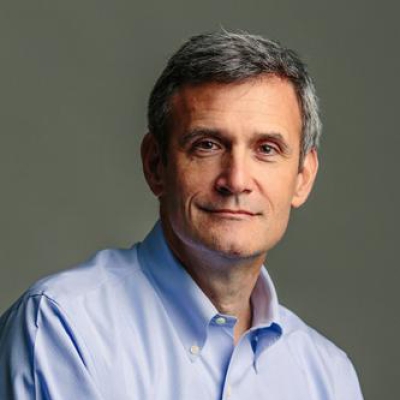Here is a list of ideals and values commonly held within a particular group of people in American life. Name the group of people who prize the following things: a belief in personal responsibility and individual merit; a respect for order, rules, and self-discipline; and a personal commitment to vibrant institutions that are critical to civil society.
It’s a fair bet that the reflexive answer of many readers would be “conservatives.” Perhaps parents or the clergy. Maybe athletes and coaches. But there’s another group that probably doesn’t come reflexively to mind: public school teachers.
Forty years ago, Ronald Reagan famously quipped that “Latinos are Republican, they just don’t know it yet,” a remark that looks more prescient with each election cycle. A similar case can be made about teachers, only in this case it runs in the opposite direction: Teachers are congenitally conservative. It’s Republicans who just don’t know it yet.
Conservatives commonly complain that public education has been captured by progressive ideology. That’s because education is inherently progressive. When it functions properly, education is an engine of social advancement, fairness, and upward mobility—all goals broadly aligned with the outlook of multi-racial, working-class progressivism. At the same time, a school is an inherently conservative institution. We build and maintain schools to expose children to our nation’s history and culture, to bond them to their community and country, and to prepare them for a responsible adult life of informed, engaged citizenship.
While teachers might not think of themselves as conservative, they preside over institutions that have proved remarkably resistant to change. Public schools endure in their basic form and function not because we lack alternatives to placing two dozen children in a classroom led by an adult every weekday, but because sending children to a place called “school” is an enduring and valued practice in nearly every American community.
It’s unsurprising that conservatives would see school choice as the best defense against a public school establishment that seems hostile to their values. Breaking the monopoly of public education—this is very nearly conservative dogma nowadays—forces schools to compete for students and funding, spurring innovation and excellence in turn. Yet what many conservatives seem not to understand is that embracing school choice as the exclusive, even primary, lever of reform while disengaging from efforts to improve public education is a mistake.
For starters, asking America’s parents to abandon their support for local public schools in favor of entirely new educational paradigms is a heavy lift. Changing schools or homeschooling can be profoundly disruptive to family life and routines, as well as children’s social lives. Transportation challenges are often insurmountable. Nor is school choice the reliable bulwark against progressive indoctrination that proponents paint it as. At elite private schools serving families with the most resources and the greatest number of schooling options available to them, the cutthroat competition for seats, combined with social pressure to be “anti-racist,” has made those schools more inclined to adopt progressive policies and curricula. Few private-school parents have shown a willingness to buck their schools’ strident progressive orthodoxies and leave.
Moreover, public school teachers are less hostile to conservative views than is commonly assumed. An Education Week survey showed that only 5 percent of teachers described themselves as “very liberal,” while another 24 percent described themselves as “liberal.” A plurality (43 percent) described themselves as “moderate.” The remaining 27 percent identified either as “conservative” or “very conservative.” This would make the teacher workforce only slightly less conservative, and somewhat more moderate than Americans at large. Debates over education, however, tend to be driven by union leaders, political advocates, faculty at colleges of education, and philanthropic funders, all of whom are a deeper shade of blue than the teachers they represent or seek to influence.
One fruitful source of common ground between conservatives and public school teachers may be student behavior, which has emerged as one of the most significant factors driving teachers from the profession. Conservatives, already skeptical of trends like restorative justice and impatient with lax student discipline, are likely to find supporters among a critical mass of teachers who want safe and orderly classrooms. There is even potential for consensus among conservatives and teachers on increasing pay.
The inescapable truth about education in America is that there is no foreseeable scenario under which traditional public schools will not educate the majority of the nation’s future entrepreneurs, engineers, doctors, soldiers, and citizens for generations to come. Conservatives are not wrong to take exception when activists seek to impose a progressive agenda on what is at heart a bedrock government service, but to respond by promoting school choice as a conflict-avoidance strategy functionally cedes public education—and the vast majority of America’s schoolchildren—to the left. If conservatives earnestly believe that public education is a hotbed of progressive indoctrination on social and political issues, it would be an act of self-immolation to surrender future generations to its influence.
None of this is to suggest that conservatives should abandon the push for school choice. The clearest triumph of the education-reform era has been the creation of new education institutions, particularly public charter schools, which are largely free from unionization and bureaucratic meddling. New networks of high-performing urban charter schools in particular have provided critical relief to communities beset by generations of public school failure. School choice is a positive force for education pluralism and system-wide improvements, and conservatives should continue encouraging and supporting choice-oriented reforms.
At the same time, they should think long and hard before retreating from engagement with traditional public education. The problems with American public schools are legion, but a simple fact dwarfs all others: They are where the children are.
Editor’s note: This is adapted from “Teachers and the Right” in the Spring 2023 issue of National Affairs.




